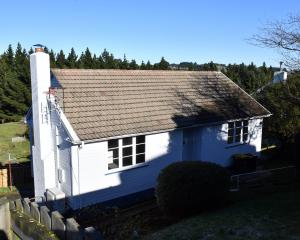The Age of Supported Independence suggests elderly who receive care at home are a "threshold" generation and the first to experience formal home care on a large scale.
Lead author Dr Beatrice Hale was a social worker with the elderly before completing her PhD, on which much of the book is based.
She has interviewed 60 people, both carers and the elderly, in Otago over the past decade.
Home care on a large scale, with agencies contracting the work from the government, was a relatively new concept coming about in the past 20 to 30 years.
Fellow author and Dr Hale's PhD supervisor, Associate Prof Robin Gauld, of the University of Otago's department of preventive and social medicine, said the book was the first to examine supported living at home.
Prof Gauld said the area was not taken as seriously as others partly because families and non-governmental agencies bore most responsibility for it.
Dr Hale said older people wanted more say over how their affairs were arranged, what care and help they received, and how it was delivered.
Initiatives such as Presbyterian Support's Enliven programme, which emphasises autonomy and tailors programmes to the individual, were a positive step, she said.
Many elderly felt socially excluded, and lacked social interaction.
They felt on the "edge" of society, rather than a part, Dr Hale said.
Social exclusion issues were relevant to all Western countries.
However, in New Zealand it was particularly so, as many families were scattered across the globe.
Prof Gauld added that in Dunedin the issue was especially pertinent, as many young people could not find work in the southern city.
Sheltered villages might be the best way the elderly could maintain their own space as well as social connections, Dr Hale said.












